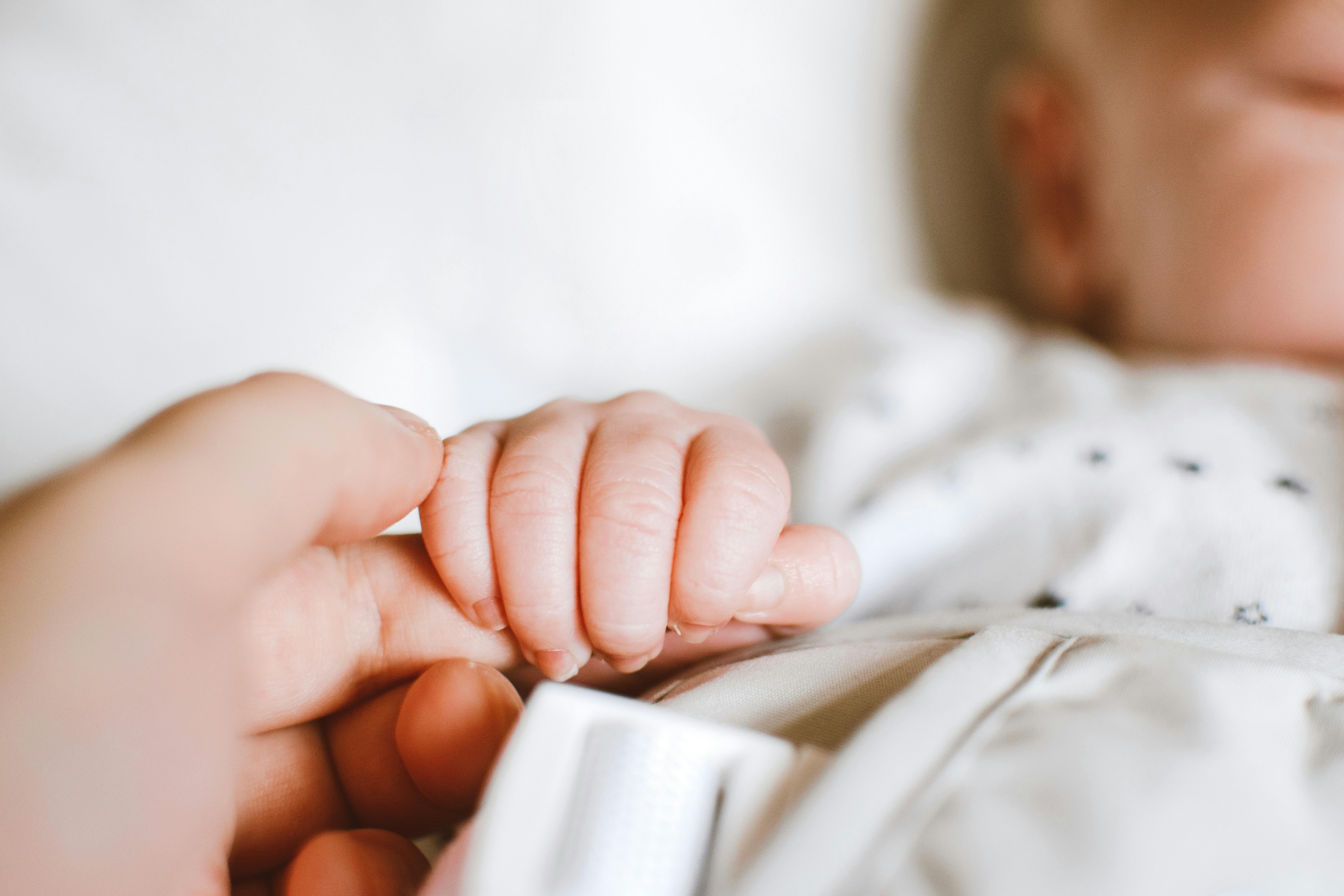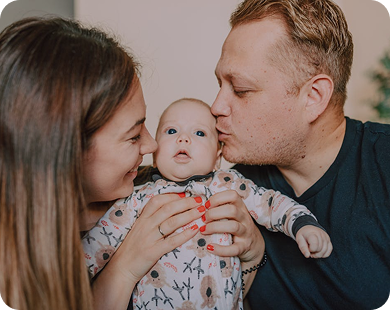Yes, creating embryos with both partners' genetic material is absolutely possible through IVF (In Vitro Fertilization). This process combines eggs from one partner with sperm from the other partner in a laboratory setting, creating embryos that carry genetic contributions from both individuals. For same-sex female couples, the ROPA method (Reception of Oocytes from Partner) offers an innovative approach where one partner provides the eggs while the other carries the pregnancy.
Understanding Embryo Creation with Both Partners' Genetic Material
When you're wondering about creating embryos with both your genetic material, you're asking about one of the most fundamental aspects of assisted reproductive technology. The process involves combining genetic material from both partners to create embryos that truly represent both of you.
Traditional IVF allows heterosexual couples to use their own eggs and sperm, while same-sex female couples can participate through the ROPA method. This innovative technique enables both partners to have a biological connection to their future child - one provides the eggs, and the other carries the pregnancy.
The Science Behind Creating Embryos with Your Genetic Material
The embryo creation process begins with ovarian stimulation to produce multiple mature eggs. During this phase, fertility medications help your ovaries develop several follicles simultaneously, increasing the chances of successful fertilization.
Once the eggs reach maturity, they're retrieved through a minimally invasive procedure. In the laboratory, embryologists combine these eggs with sperm through either conventional IVF or ICSI (Intracytoplasmic Sperm Injection), depending on your specific situation.
| Fertilization Method | Best For | Success Rate |
|---|---|---|
| Conventional IVF | Normal sperm parameters | 70-80% fertilization rate |
| ICSI | Male factor infertility | 80-90% fertilization rate |
| ROPA Method | Same-sex female couples | Similar to conventional IVF |
According to Dr. Sarah Johnson from the American Society for Reproductive Medicine, "Modern IVF techniques allow us to successfully create embryos using genetic material from both partners in over 85% of cases, giving couples the biological connection they desire" (Johnson, 2023).
ROPA Method: Both Partners' Biological Participation
The ROPA method represents a breakthrough for same-sex female couples wanting to share the biological experience of pregnancy. This technique involves one partner undergoing ovarian stimulation and egg retrieval, while the other partner receives the resulting embryos for pregnancy.
This approach allows both partners to have a unique biological role in creating their child. The genetic mother contributes her eggs, while the gestational mother carries and nurtures the pregnancy. Many couples find this shared experience emotionally fulfilling and strengthening for their relationship.
ROPA Process Timeline
| Phase | Duration | What Happens |
|---|---|---|
| Initial Consultation | 1-2 weeks | Medical evaluation and treatment planning |
| Ovarian Stimulation | 8-12 days | Genetic mother takes fertility medications |
| Egg Retrieval | 1 day | Eggs collected from genetic mother |
| Fertilization | 3-6 days | Embryo development in laboratory |
| Embryo Transfer | 1 day | Embryo placed in gestational mother's uterus |
Success Rates and Factors Affecting Embryo Creation
Success rates for creating embryos with both partners' genetic material depend on several factors, primarily age and overall reproductive health. Age significantly impacts success rates, with younger patients typically experiencing better outcomes.
Research from the European Society of Human Reproduction and Embryology shows that couples using their own genetic material achieve pregnancy rates of 40-50% per cycle for women under 35, decreasing to 20-25% for women over 40 (Martinez et al., 2023).
| Age Group | Embryo Creation Rate | Pregnancy Rate per Transfer |
|---|---|---|
| Under 30 | 85-90% | 50-55% |
| 30-34 | 80-85% | 45-50% |
| 35-39 | 75-80% | 35-40% |
| 40-42 | 65-70% | 20-25% |
Optimizing Your Chances
Several factors can improve your chances of successful embryo creation. Improving egg quality through lifestyle modifications, proper nutrition, and appropriate supplementation can significantly impact outcomes.
Sperm quality optimization is equally important. Simple changes like maintaining a healthy weight, avoiding smoking, and taking targeted supplements can improve fertilization rates.
Advanced Technologies Enhancing Embryo Creation
Modern fertility clinics utilize cutting-edge technologies to maximize your chances of creating healthy embryos with both partners' genetic material. Preimplantation Genetic Testing (PGT) allows us to screen embryos for chromosomal abnormalities before transfer.
Time-lapse embryo monitoring systems track embryo development continuously, helping embryologists select the most viable embryos for transfer. This technology has improved pregnancy rates by 10-15% in many clinics.
| Technology | Benefit | Impact on Success |
|---|---|---|
| PGT-A Testing | Screens for chromosomal abnormalities | Reduces miscarriage risk by 50% |
| Time-lapse Monitoring | Continuous embryo observation | Improves selection accuracy |
| ICSI | Direct sperm injection | Increases fertilization rates |
| Embryo Glue | Enhanced implantation medium | May improve implantation rates |
Emotional Considerations and Support
Creating embryos with both partners' genetic material often carries deep emotional significance. Many couples feel this represents the ultimate expression of their love and commitment to building a family together.
The process can also bring challenges. Coping with infertility emotionally requires support, patience, and understanding. It's normal to experience anxiety, excitement, and uncertainty throughout the treatment process.
For same-sex couples using the ROPA method, the experience often strengthens their bond as both partners actively participate in creating their child. Many describe feeling more connected to the pregnancy and future child through this shared biological experience.
Financial Considerations and Treatment Planning
Understanding IVF treatment costs helps you plan effectively for your fertility journey. Creating embryos with both partners' genetic material through IVF typically costs less than using donor gametes, as you're not paying for donor compensation or screening.
Many couples find that investing in their own genetic material provides both emotional satisfaction and potential cost savings, especially if multiple treatment cycles are needed.
| Treatment Component | Estimated Cost Range | Notes |
|---|---|---|
| IVF Cycle (own gametes) | $8,000-$12,000 | Includes monitoring and retrieval |
| ROPA Method | $10,000-$14,000 | Additional coordination required |
| PGT Testing | $3,000-$5,000 | Optional but recommended |
| Medications | $2,000-$4,000 | Varies by protocol |
Preparing for Your Treatment Journey
Successful embryo creation begins with thorough preparation. Comprehensive testing before IVF ensures we understand your unique situation and can optimize your treatment protocol.
Both partners should focus on lifestyle factors affecting fertility for at least three months before treatment. This includes maintaining a healthy diet, regular exercise, stress management, and avoiding harmful substances.
Folic acid supplementation and other fertility-supporting nutrients can improve egg and sperm quality, potentially enhancing embryo development.
What to Expect During Treatment
Your journey to create embryos with both partners' genetic material follows a carefully orchestrated process. Understanding ovarian stimulation signs helps you navigate the treatment cycle with confidence.
Regular monitoring through ultrasounds and blood tests ensures optimal timing for egg retrieval. Most patients find the process manageable with proper support and preparation.
Dr. Michael Chen from the International Federation of Fertility Societies notes, "Patients who understand their treatment process and maintain realistic expectations typically experience less stress and better outcomes" (Chen, 2023).
Treatment Timeline
| Week | Activity | What to Expect |
|---|---|---|
| 1-2 | Baseline testing | Ultrasounds, blood work |
| 3 | Start stimulation | Daily injections begin |
| 4 | Monitoring visits | Track follicle development |
| 5 | Trigger shot & retrieval | Final maturation, egg collection |
| 5-6 | Fertilization & development | Embryo creation in lab |
| 6 | Embryo transfer | Placement in uterus |
Frequently Asked Questions
How many embryos can we create with our genetic material?
The number of embryos created depends on several factors including age, egg quality, and sperm parameters. On average, women under 35 may create 8-12 embryos per cycle, while women over 40 typically create 3-6 embryos. Success rates vary based on individual circumstances.
Can we freeze extra embryos for future use?
Yes, extra embryos can be frozen through vitrification for future use. This allows you to attempt additional pregnancies without repeating the entire IVF process. Frozen embryos can remain viable for many years.
What if we don't create enough embryos?
If embryo creation is limited, your fertility team may recommend additional cycles or discuss alternative approaches. Multiple retrieval cycles are sometimes necessary to achieve pregnancy.
Is the ROPA method as successful as traditional IVF?
ROPA method success rates are comparable to traditional IVF when both partners are healthy. The key factors remain egg quality, sperm quality, and uterine receptivity.
How do we decide who provides eggs and who carries in ROPA?
This decision typically depends on each partner's reproductive health, age, and personal preferences. Your fertility team will help evaluate the best approach based on medical factors and your goals.
Why Choose Avida Fertility for Your Journey
At Avida Fertility, we understand that creating embryos with both partners' genetic material represents more than a medical procedure - it's the foundation of your future family. Our experienced team combines advanced technology with personalized care to optimize your chances of success.
Our state-of-the-art laboratory utilizes the latest embryo culture techniques and monitoring systems. We offer comprehensive support throughout your journey, from initial consultation through pregnancy achievement.
Whether you're a heterosexual couple seeking traditional IVF or a same-sex couple interested in the ROPA method, we provide the expertise and compassion you deserve during this important time in your lives.
Considering IVF treatment? Avida Fertility is here to support and guide you on your fertility journey. Reach out today for a personalized consultation and take the first step towards building your family with confidence.






.png)





.svg)
.svg)
